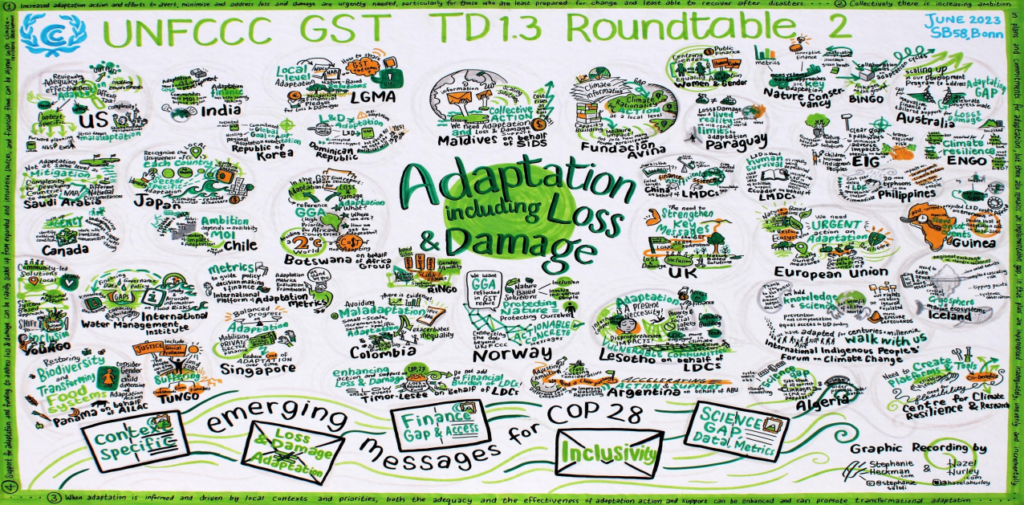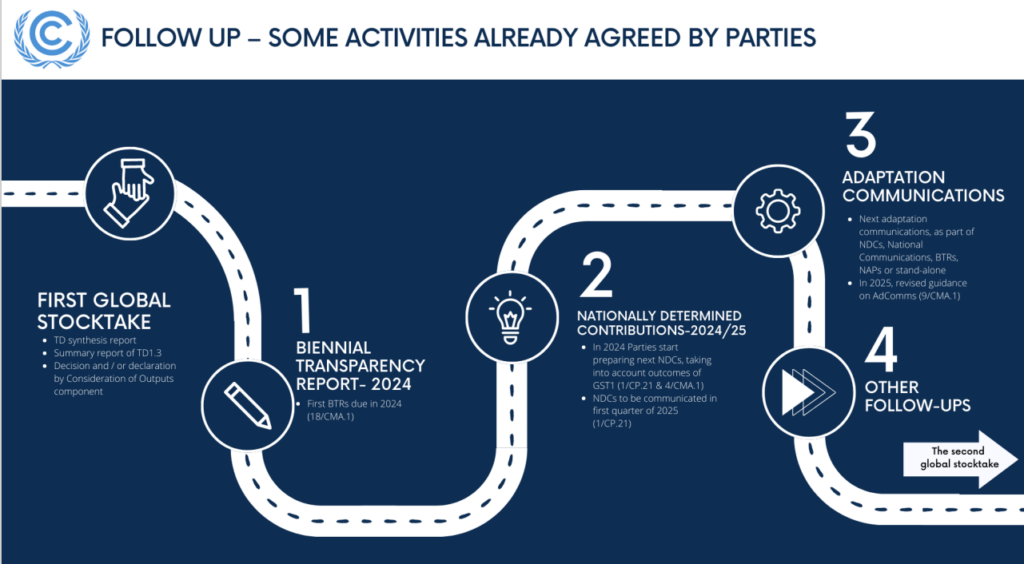Regions4’s Response to the Global Stocktake Summary Report: The Crucial Role of Subnational Governments to Accelerate Climate Action
UN Climate Change (UNFCCC) shared on September 8th the summary of the first-ever Global Stocktake (GST) under the Paris Agreement, marking a critical milestone in our collective journey to combat climate change. The GST is an essential process, as outlined in Article 14 of the Paris Agreement, designed to assess the world’s progress in achieving the agreement’s purpose and long-term goals.
Regions4, along with its partners, calls upon COP28 and parties involved, to learn from the GST process and report, and to address the critical gaps and issues highlighted within it. While the report references cities, states, and regions, it fails to acknowledge the term multilevel throughout the document. This omission underscores the need for greater recognition of the vital role played by subnational governments in climate action.
We firmly believe that meaningful progress can only be achieved through collaboration among all levels of government. It is no longer sufficient for national governments alone to set NDCs and NAPs; these commitments must be localized/regionalized and supported by strong coordination mechanisms within a sustainable multilevel governance framework.
Subnational governments, including states, regional governments, and cities are at the forefront of developing and implementing innovative solutions that can be scaled up and out. Their contributions and commitments to initiatives like Race to Zero and Race to Resilience should be acknowledged and reviewed as part of the global stocktake process.
Furthermore, addressing the critical gap in decentralizing climate finance to the local and regional levels is paramount. Targeted funds and support should be provided to empower local and regional actors in their climate actions.
As articulated by the UN Climate Change High-Level Champion for the UAE’s COP28, Razan Al Mubarak, businesses, investors, cities, and regions can provide the groundswell of action needed to achieve our climate goals. Collaboration among these stakeholders is essential for building a more resilient, nature-positive, net-zero emissions economy that benefits health, security, jobs, equality, and sustainable development for all.
The GST report serves as a vital wake-up call, emphasizing the urgency of our collective climate efforts. Regions4 stands ready to work collaboratively with national governments, cities, businesses, and other stakeholders to drive the necessary transformation toward a sustainable and resilient future for all.
Regional Governments and Their Contributions
Regional governments play a vital role in accelerating climate action. In 2022, as reported by 108 regions through the States and Regions survey of CDP, 60% have active greenhouse gas emissions reduction targets, and 66% have climate action plans or strategies in place. Many regions have also developed regional adaptation plans, which are integral to enhancing adaptive capacity and resilience.
Adaptation planning, as highlighted in the GST synthesis report, is the first step toward effective adaptation action. The implementation of these plans must now be expedited to increase adaptive capacity, promote greater resilience, and reduce vulnerability.
The report emphasizes the importance of locally-led adaptation. When adaptation is context-driven, it becomes more adequate and effective, promoting transformational governance and territorial resilience.

GST Report Key Highlights
The GST report unequivocally indicates that global emissions are not aligning with the modelled mitigation pathways necessary to limit warming to 1.5°C above pre-industrial levels. This gap between emissions and mitigation goals is narrowing rapidly, underscoring the urgent need to enhance ambition and fulfil or boost existing commitments.
Mitigation measures, when aligned with other sustainable development goals, can be scaled up and adapted across various contexts. The sustainable development benefits of such measures are crucial for addressing not only climate change but also poverty eradication, and biodiversity conservation. Addressing deforestation, improving agricultural practices, and enhancing carbon sinks are pivotal for reducing emissions, conserving our natural environment, and strengthening resilience and local development opportunities.
The report states that adaptation and loss and damage efforts require a substantial increase in ambition to meet the Paris Agreement’s goals. The window for securing a liveable and sustainable future for all is rapidly closing as losses and damages to human and natural systems continue to mount.
Key Recommendations
The GST report offers several key recommendations that should guide COP28 and future climate actions:
- Climate action and support should be catalysed by all stakeholders, through a whole-of-society approach, including cities, subnational authorities, local communities, and Indigenous Peoples.
- International public and private finance remain a critical enabler for climate action, and it must be strategically deployed to support developing countries and regions.
- Shifting finance flows systematically to support climate action at the required scale and speed is essential.
- Capacity-building is foundational to sustained climate action and requires effective, country-led cooperation at all levels.
Access the full UNFCCC “Technical Dialogue of the First Global Stocktake” report HERE.

For more information, please contact:
Héloïse Chicou – Climate Action and Resilience Programme Manager – climate@regions4.org



